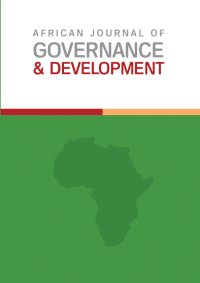Political dynamics and service delivery in urban Ghana: The case of Tema Metropolitan Assembly
Main Article Content
Abstract
This paper makes a case study of Tema Metropolitan Assembly (TMA) and how it is shaped
by the dynamics of politics and the implications of such dynamics for service delivery. The paper contends that local politics engaged in by local politicians, including the Metropolitan Chief Executive, Assembly members, chiefs, religious leaders, powerful individuals and the community (described generally as stakeholders) as well as central government and supra-national bodies, shape urban governance in Ghana, including TMA in terms of structure, operational priorities, policy choices and implementation, and ultimately service delivery. Using a qualitative approach to data collection, specifically, purposive sampling, a number of key officers of TMA and a sample of residents were interviewed to ascertain how political dynamics define the activities and structures of TMA and its implications for service delivery. While it is acknowledged that the political dynamics have enormous implications for service delivery in that it has to strike a balance between delivering efficient service to the community while at the same time serving as
the implementation arm of the government, it is also the case that this balance is not always carried through to perfection, since most often than not, service delivery is said to be mere propaganda and rhetoric rather than reality. Using the Institutional Collective Action (Leroy, et al) framework, the areas of service delivery, including sanitation, waste management, safety and security, infrastructural development,, have been discussed from the perspectives of TMA and the stakeholders, on the one hand, and the residents on the other. While the governance model adopts a bottom-up approach where programmes and projects are said to be proposed by assembly members after gathering inputs from the grassroots, and eventually validated through town hall meetings, need assessments and community engagements, service delivery is said to be less than expected, as revealed by residents through interviews. How come some members of the community don’t seem to know or appreciate that the services delivered by the TMA is a matter of serious reflection on the political dynamics that underpin the activities of urban government largely and TMA specifically?
Article Details

This work is licensed under a Creative Commons Attribution-NonCommercial-NoDerivatives 4.0 International License.
